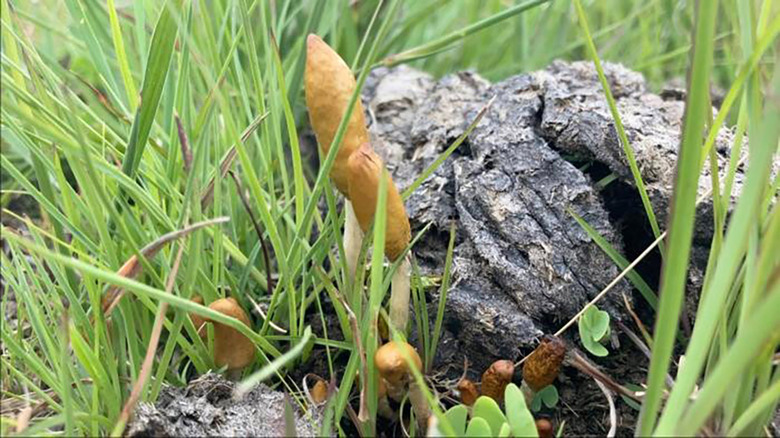2 New Species Of Hallucinogenic Mushroom Were Just Discovered
Researchers have discovered two new hallucinogenic mushroom species, both of which are believed to be novel species in the Psilocybe genus. The two new species, P. ingeli and P. maluti, were uncovered in southern Africa.
P. ingeli was found in the grasslands of Kwa-Zulu Natal Province in South Africa, while P. maluti was discovered 500 kilometers (310 miles) away in the Free State Province. P. maluti has also been seen in the Kingdom of Lesotho and was named after the Maluti Mountains, where it is found. It's also been spotted more broadly across South Africa.
While both of these new hallucinogenic mushroom species are part of the same genus, they have distinct morphological differences. P. ingeli, for instance, sports a hemispheric cap with exposed gills. P. maluti, on the other hand, is more bulb-shaped. However, both species were found growing in bovine-manure-rich soil, or even growing directly out of piles of poop.
The first author on a new study of the mushrooms says that they were discovered by citizen scientists, and that it would be impossible for a single research to cover even a fraction of the area that the mushroom enthusiasts have access to.
Despite being a new species to scientists, at least one of these two new hallucinogenic mushroom species has been used in cultural practices throughout Lesotho. P. maluti is the only psychedelic mushroom recorded as being used in traditional African medicine, too.
You can read through the findings in the journal Mycologia. The discovery of more mushrooms is exciting, as some believe that some mushrooms could even help cure cancer.
